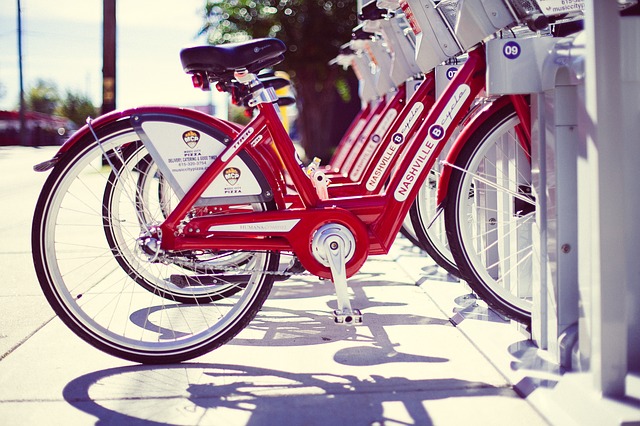The new reality of the US bike market
Posted on in Business News , Cycles News
Industry veteran Rick Vosper gives his insight into the US bike market, part one explores the concepts of Bike 1.0, Bike 2.0 and Bike 3.0
In his most recent article published on Bicycle Retailer & Industry News (BRAIN), Rick explores a new reality of bikes through the fresh market dynamic and the journey taken to get to where bikes are in the 21st century. Whilst he focuses on the US industry it has a number of interesting parallels this side of the pond too.



 Vosper defines the period between the 1950s and 1975 as the era 1.0, a
post-war period of relative stability. During this time Schwinn was the
single and only market leader controlling both the supply and retail
landscape of bikes. Schwinn's organised, managed and marketed integrated
supply chain maintained by the network of semi-independent retailers
led to the formulation of the modern independent bike retail landscape.
Vosper defines the period between the 1950s and 1975 as the era 1.0, a
post-war period of relative stability. During this time Schwinn was the
single and only market leader controlling both the supply and retail
landscape of bikes. Schwinn's organised, managed and marketed integrated
supply chain maintained by the network of semi-independent retailers
led to the formulation of the modern independent bike retail landscape.
Unfortunately,
as times changed and the world evolved Schwinn's control in the market
landscape declined resulting in the death of era 1.0. This launched an
era of mountain bikes and perfect competition (era 2.0).
Parallel
to the start of the 2.0 bike era, the world saw the life and death of
the Bike Boom. During the success of Bike Boom, there was an increase in
power held by independent importers and distributors as the lightweight
drop-bar imports claimed a significant space in market share. This was a
trend that skyrocketed and continued even after the death of the Bike
Boom by the introduction of Asian bikes from Japan, later Taiwan and
finally China.
The bike landscape had been set up perfectly
for the mass introduction of mountain bikes in the early 1980s with the
manufacturing of high-quality bikes produced by companies such as Trek
and Cannodale.
The success of the mountain bikes was not
solely based on the new category of product but on the generation of
improved brands and a new business model focusing on manufacturing and
finance. Brands such as Trek, Specialized, Giant, Cannondale, Shimano
and other major bike industry player you see today came of age during
the era 2.0.
The perfect competition as a concept sits at the epicentre of the era 2.0.
The
perfect competition - a concept where no one brand or brands can
achieve enough share to dominate and thereby control the market. Profits
are low throughout the supply chain, and consequently both brands and
retailers lack resources to overcome the inertia of a perfect
competitive market.
A perfectly competitive market has just four requirements:
- A large and homogeneous market
- Information availability
- Absence of external controls and low barriers to entry
- Cheap and efficient transportation
It
is for the perfect competition that the mountain bike and post-mountain
bike eras saw rapid innovation, many of which collectively define
spaces in the current bike market today.
The end of era 2.0
and the dawn of era 3.0 saw the contraction of the bike industry in 1998
with more than 1,300 storefronts failing in 2001. This number was in a
continual decline, dropping steadily over the next decade to fewer than
4,000 retail locations in 2014.
At the turn of the century
due to saturation, three factors led to the birth of era 3.0 as the
mountain bike and suspension mountain bike markets faded in succession.
Era 3.0 is made up of three defining characteristics:
- Finite and a declining number of dealers
- Contraction and consolidation at the supplier side of the business
- Rise of internet commerce
This is what Vosper defines as the new reality (era 3.0).
Read the new reality part 2 here.


